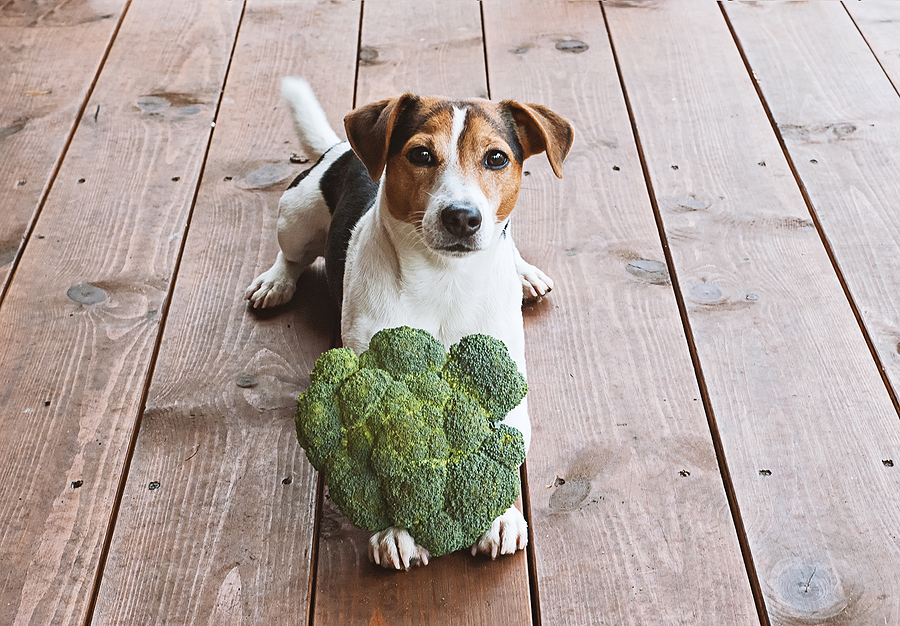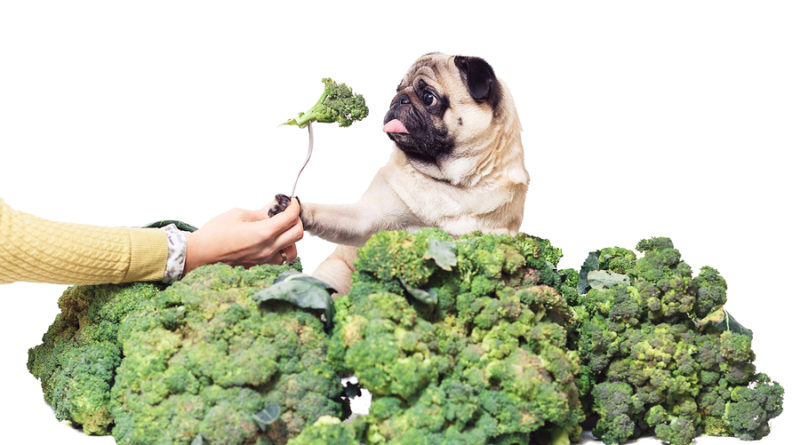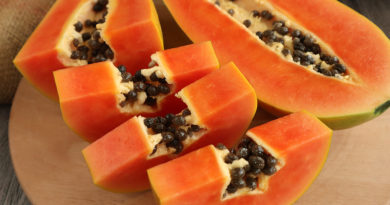Can dogs eat Broccoli?
Featured image by © bigstockphoto.com / Varnava_photo
Can Dogs Eat Broccoli?
Broccoli is one of the healthiest foods in the human diet, providing a vital source of vitamins and fiber needed for a well-balanced diet. It is inexpensive, easy to prepare–whether cooked, steamed, roasted, or grilled—and has plenty of ingredients that are beneficial to humans.
So, the big question is, “Can dogs eat broccoli?” After all, dogs benefit from foods that are rich in nutrients, fiber, and vitamins, as well.
While a simple answer to this question is YES, that response comes with some considerations you need to follow. Please read the information below before feeding broccoli to your dog.
Here, we discuss the benefits of broccoli for your dog, how it will affect your companion’s health, and the best ways to feed it to your pet.
Benefits of Broccoli for Dogs
A dog’s diet differs from humans, although our two species do share some similarities. The need for a steady diet of fruit and veggies is essential for humans, but dogs could actually remain healthy without them. However, young dogs that are still growing can particularly benefit from the additional vitamins and fibers that vegetables offer, according to researchers.
In that sense, broccoli can be an excellent dietary choice for dogs. It has a high vitamin C content, high fiber content, and is fat-free. On top of that, the Vitamin K found in broccoli can help create strong bones and improve bone density of your growing pup. Additionally, dogs can eat broccoli either raw or cooked, as long as you stay away from any added oils or seasoning—however, slight cooking makes it easier to digest.

Potential Hazards to your Dog
The main downside of feeding broccoli to dogs is a compound called isothiocyanate. The primary role of isothiocyanate, which resides in the broccoli’s florets of broccoli, is to help protect the plant from different types of bacteria. This compound exists in other cruciferous vegetables as well, like kale, cauliflower, cabbage, or Brussels sprouts. Broccoli contains higher concentrations of isothiocyanate than the others, though.
In small amounts, isothiocyanate does not pose a threat to a dog’s health. However, be sure to keep portions small for your dog. Serious problems start if the quantity of broccoli—along with other fruits and vegetables consumed—exceeds 10% of the daily recommended dietary intake for dogs. Moreover, if your dog consumes more than 25% of its daily dietary intake in broccoli, isothiocyanate may become toxic and endanger your dog’s life.
The most common reactions to isothiocyanate are gastric problems, including gut irritation and bloating. Make sure to watch your dog closely after eating broccoli. At the first sign of gut irritation, unpleasant gas, or diarrhea, immediately take your dog to a vet.
How to Feed Broccoli to Your Dog
A controlled intake of fruits and vegetables is beneficial to dogs, and broccoli stands out as a natural source of vitamins C and K, potassium, and fiber. If you would like to incorporate broccoli in your dog’s diet, please follow the following guidelines:
- Limit portions. Never allow the daily intake of broccoli plus other fruits and vegetables to exceed 10% of your dog’s total dietary intake.
- Start slowly. Introduce broccoli to your dog in small portions, then see how your dog reacts to it. If that goes well, you may gradually increase the amount of broccoli up to a limit of 10% of your dog’s daily intake.
- Chop it up. Broccoli stalks are a well-known choking hazard, especially with small dogs. Make sure to chop up broccoli into bite-sized pieces for your dog before feeding time.
- Cook it first. Cooked broccoli makes it easier for dogs to digest and swallow.
In summary, broccoli provides a healthy dietary choice for your canine friend, as long as you limit portions and avoid seasoning or additives. If, at any point, you have any doubts or questions about your dog eating broccoli, please make sure to consult your veterinarian.




